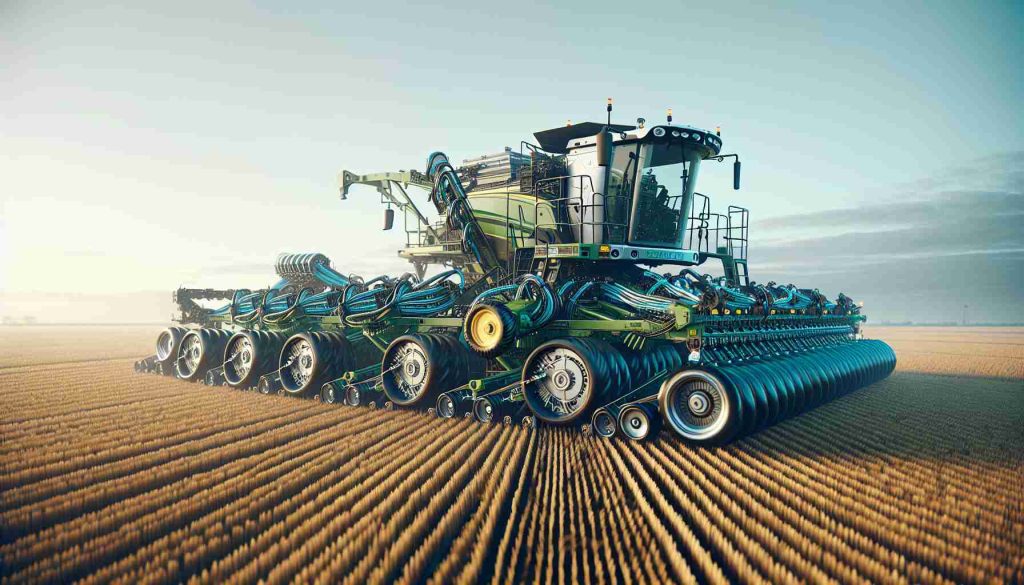New Ethanol-Powered Machinery Revolutionizes Agricultural Practices
3 min read
A groundbreaking advancement in agricultural technology has emerged, showcasing a revolutionary shift towards sustainable farming practices. Instead of relying on traditional fuel sources, this innovative machinery harnesses the power of ethanol to propel its operations forward. The introduction of this new ethanol-powered engine marks a significant milestone in the industry’s commitment to reducing carbon emissions and promoting environmental stewardship.
Gone are the days of solely relying on fossil fuels to drive agricultural machinery, as this new engine paves the way for a more eco-friendly approach to farming. By utilizing 100% ethanol, farmers can now operate their equipment with a reduced carbon footprint and contribute to a cleaner, greener environment. Furthermore, this technological leap signifies a shift towards greater energy independence and resilience within the agricultural sector.
The collaboration between leading industry players has led to the development of a cutting-edge engine that not only meets, but exceeds sustainability standards. This new era of ethanol-powered machinery is reshaping the landscape of modern agriculture, emphasizing the importance of innovation and sustainability in the quest for a more environmentally conscious future.
As farmers embrace this game-changing technology, they are not only enhancing their operational efficiency but also taking significant strides towards a more sustainable and environmentally friendly agricultural sector. The adoption of ethanol-powered machinery heralds a new age of farming practices, demonstrating the industry’s commitment to embracing greener solutions for a brighter tomorrow.
The introduction of ethanol-powered machinery in agriculture presents a multitude of advantages, but also raises key questions and challenges that need to be addressed.
What are the advantages of using ethanol-powered machinery in agriculture?
Ethanol-powered machinery offers a significant reduction in carbon emissions compared to traditional fossil fuel-powered equipment. By using 100% ethanol as a fuel source, farmers can operate with a lower carbon footprint, contributing to a cleaner environment and sustainable farming practices. Additionally, this technology promotes energy independence and resilience within the agricultural sector, reducing dependency on non-renewable resources.
What are the key challenges or controversies associated with ethanol-powered machinery?
One of the challenges related to ethanol-powered machinery is the availability and accessibility of ethanol fuel. Ensuring a consistent and reliable supply of ethanol can be a hurdle for farmers, especially in regions where ethanol production or distribution infrastructure is limited. Another consideration is the potential impact of ethanol production on food production and prices, as the demand for ethanol continues to increase.
Advantages of Ethanol-Powered Machinery:
1. Reduced carbon emissions and environmental impact.
2. Enhanced sustainability and eco-friendly farming practices.
3. Promotes energy independence and resilience in agriculture.
4. Encourages innovation and technological advancements in the industry.
Disadvantages of Ethanol-Powered Machinery:
1. Challenges related to the availability and accessibility of ethanol fuel.
2. Potential impacts on food production and prices.
3. Initial investment costs for transitioning to ethanol-powered equipment.
4. Maintenance and operational considerations specific to ethanol-powered engines.
In conclusion, while ethanol-powered machinery offers significant benefits in terms of sustainability and environmental impact, addressing challenges such as fuel availability and potential economic impacts is crucial. Embracing this innovative technology in agriculture requires careful consideration and strategic planning to maximize its full potential while mitigating any associated drawbacks.
For more information on ethanol and sustainable agriculture, visit Agriculture.com.






